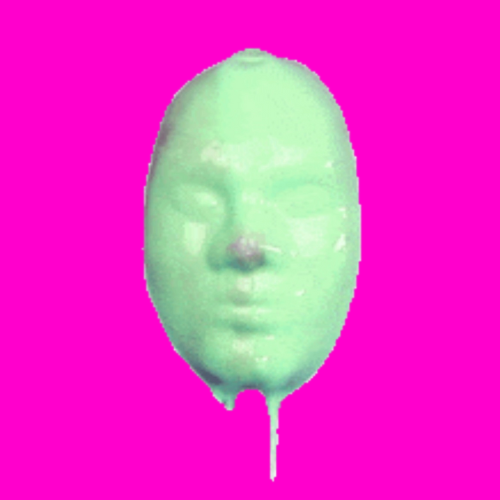Body Dysmorphia: Expanding the Conversation
How we unconsciously view ourselves and others against the societal ideal or "default body" is of endless fascination to me
"Love yourself," say the impossibly thin, beautiful, and young (or impossibly jacked, beautiful, and young) wellness gurus. "Everyone is welcome!" say the gyms and studios, rainbow signs populated with rainbow people bandied about proudly on their walls. Media and cultural messaging say otherwise. How dare you thicken in the wrong places and lack thickness in the right ones? How dare you have skin darker than a brown paper bag? How dare you love who you love? How dare you not conform to the rigid idea of a man or a woman we have granted you? How dare you be sick or disabled? How dare you grow old? The list goes on and on.
I spent a lot of my life wanting to occupy a body different from the one I live in
Through my girlhood and teenage years, I wanted to be a skinny white girl. "What the heck, Andrea?!" you might be thinking to yourself. Keep in mind I grew up in a country of predominantly brown people colonized by Spain from 1521-1898, and then by America from 1898-1946. American neo-imperialism continues on the Philippine islands until today. With all this came the aggressive pedestaling of Eurocentric beauty standards that continues to the present.
In my early 20s, being ethnically ambiguous became more fashionable, and then I just wanted to be skinny, skinny, skinny. I also wanted to look young, not realizing that at 23 (when these fears began cropping up), of course I looked fucking young. I remember being so horribly afraid that my under eye bags - a genetic gift from my father's side of the family - made me look uncharacteristically haggard for a woman my age that I spent a third of my salary as a struggling writer on expensive, ineffective under eye cream that did nothing but make my eyes sting.
These are simply the specifics of my life and context. We all have our own. I am also well aware that there are many ideals which I do embody.
What is an ideal or "default" body?
These are the bodies we see, consciously and unconsciously, as being the most valuable in the social order. The default body is a social construct that many of us unconsciously accept as a given. It shifts from place to place, and varies across time. The Internet exacerbates the rate at which defaults are spread. The goal posts are always changing.
The ideal/default body is a concept that we are constantly being advertised and sold on. Laws are built centering ideal bodies and disregarding the rest to varying degrees of harm. The idea of the default body is everywhere, insidiously.
A few resources on the subject you can peruse at your leisure:
The Age of the Instagram Face - Author Jia Tolentino talks about how social media, FaceTune, and plastic surgery created a single, cyborgian look
I Was the Ideal Woman - Supermodel Paulina Porizkova, now 57, discusses the dark side of working in the industry: being seventeen and hawking anti-aging creams, rampant harassment from male photographers and the normalization of it by other women, who the "ideal woman" actually is (hint: not a woman, but a girl)
The Body Is Trustworthy - A conversation between cultural critic Anne Helen-Petersen and inclusive health & wellness advocate Dalia Kinsey about the layered ways in which fatphobia, racism, homophobia, and misogyny show up in the wellness movement and cause real, measurable harm to marginalized bodies.
LGBTQ Youth & Body Dissatisfaction - A research brief by The Trevor Project, the world's largest suicide prevention and crisis intervention organization for LGBTQ young people. Between September and December 2021, 33,993 LGBTQ youth were surveyed to assess body satisfaction. Nearly nine in ten (87%) reported being dissatisfied with their body. Rates of body dissatisfaction were higher among transgender and nonbinary youth (90%) compared to cisgender youth (80%).
This is What It's Like for Men With Eating Disorders - Roughly one in three people struggling with an eating disorder is male, yet the conversation on eating disorders is still largely centered around women.
Conversations around what determines wellness and who gets to be well are rarely had in the mainstream, and they are grossly incomplete without the consideration of these topics
Working in the yoga industry for over a decade in San Francisco, one of wellness's global epicenters, I found many of my insecurities reinforced under the guise of "health" and "fitness." I know I am not alone in this from countless conversations I've had with you all about how it feels to occupy the particular skin that you live in.
Many of us carry around so much unnecessary shame about our bodies. This is put on us. When we are ashamed, we feel powerless. When we think we are powerless, we can easily be manipulated and profited from. We uphold shitty standards against ourselves and other people. My aim in complicating the narrative of our bodies is so that we can create new ones for ourselves and each other. Do you think there is something wrong with you that needs to be fixed? If you pull on the threads of those thoughts, where did they originate? Like I said in my last email, what does it bring up in you for me to say that you are enough, as you are? How would you live your life?
